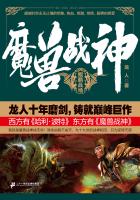Is there a just distribution of economic goods? Or should there be? This is a question which is raised again to-day, a question which has been asked as long as human society and social institutions have existed. The greatest thinker of ancient history asked the question and thousands after him have repeated it, sages and scholars, great statesmen and hungry proletarians, thoughtful philanthropists and enthusiastic idealists.
To-day the question seems less opportune than ever. Even those who pride themselves on their idealism declare it to be one of the useless questions which nobody can answer.
Aristotle's ideas of distributive justice are looked down upon as antiquated and set aside by the progress of science.
Comparing superficially the phenomena of nature with the social processes, Darwin's theory of the struggle for existence, which permits the strong to oppress the weak and excludes all possibility of a just distribution of earthly possessions, is brought into play. Many political economists also disregard the question, the more so the father they are removed from philosophical inquiries, and the more they delve into special questions remaining, despite many concessions to modern schools, in their fundamental views in the beaten paths of English and German dogmas, which know no other categories than demand and supply. They have, as a rule, a vague, half-conscious feeling that socialism demands a juster distribution of goods, and hence the conservative citizen and friend of order has no choice but to oppose this idea. Those who harbor such thoughts and feelings place themselves, it is true, in the sharpest contrast to the great founders of modern social science.
No one was ever more convinced that his proposed reforms would effect a more just or indeed an absolutely just distribution of goods than Adam Smith or Turgot, or their sincere followers. Faith in the justice of its demands was the backbone of the economics of natural law. As a consequence of "natural freedom and justice," Adam Smith requires freedom of migration and trade. To the greatest disciple of Adam Smith, for thus have Ricardo's ideas been recently correctly summarized, free individual competition appears to be truest justice to all laboring humanity. This is not accidental. No great social or economic reform can conquer the sluggish resistance which opposes it by merely showing its utility. Only when it can be made to appear that what is demanded is the demand of justice, does it inflame and move the masses. For years I have watched in public discussions and in economic publications hen and where the question of justice was drawn into economic matters, and I have found that involuntarily it occurs almost everywhere. In discussing the bank question, the opponent of unsecured notes declares them to be an injustice; when duties are proposed, the free-trader claims first that they are unjust, then immoral, and only in the third place that they are economically harmful. In all discussions about the change in the German customs policy of 1878, both sides tried to prove that what the opponent desired especially injured the working man and the small capitalist, and thus affected in the most unjust way the distribution of income and wealth. A well-known politician, who declares the discussion of justice in the distribution of income and wealth to be superfluous, falls into the same mistake with which he reproaches his opponents, in his polemic against Marx. He declares the present distribution of wealth in Germany to be legitimate, because it was not the possession of colonies, not the work of slaves, but the honest labor of German citizens which created this wealth. He thus unconsciously calls attention quite correctly to the central idea which to-day governs the popular mind in regard to the just distribution of wealth. A leading speaker of the free-traders, in the Reichstag, said that to-day the naive advocacy of low wages dare no longer venture into the light. To-day we consider conditions economically sound only when they guarantee to each participant in the work a just participation in the earnings. And he adds: "The economic ideal is reached when the greatest production and the most uniform distribution among the participants of the profits earned coincide."Whether a just distribution of goods exists in reality or not, a question which for the present I will leave unanswered, still it is always spoken of, there is a general belief in it;this belief is speculated upon, and it has its practical consequences.
This brings us to the correct formulation of the question with which we must begin. We would not from any principle whatsoever logically deduce a formula whose strict application would at all times produce justice; we would simply and modestly put the question, How does it happen that economic transactions and social phenomena so often bring forth a favorable or adverse criticism which asserts that this is just, that unjust? When we have a correct answer to this, then it will be easy to draw further conclusions and to decide what force, weight and influence this approving or disapproving judgment will exercise retroactively on the social and economic phenomena.















